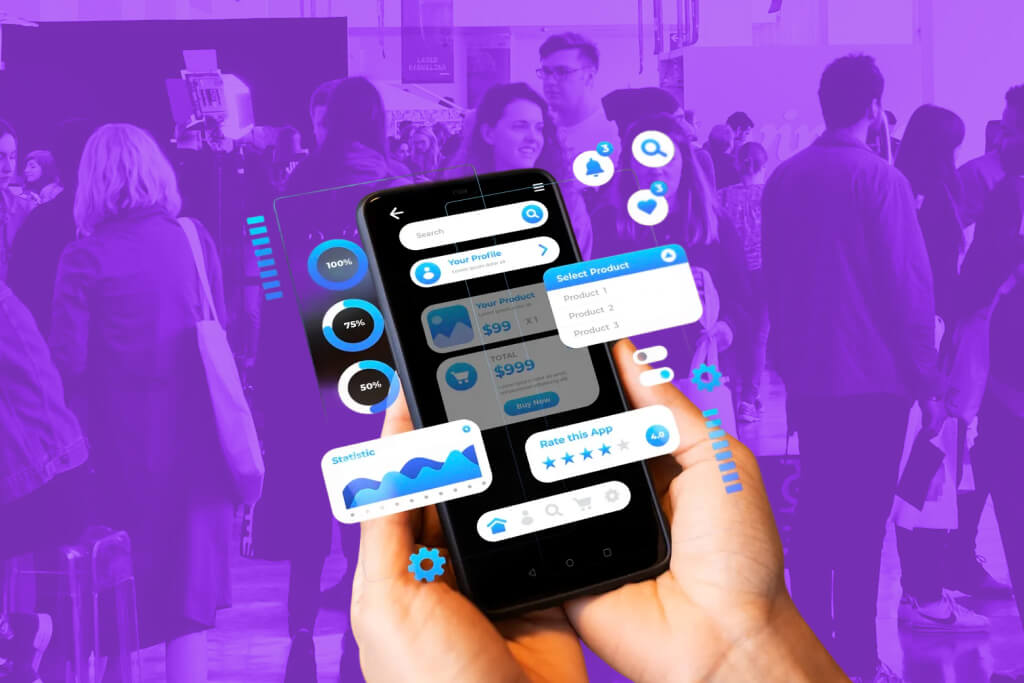Post-event research involves collecting and analyzing data after an event to measure its effectiveness, understand attendee behavior, and assess the event's impact on broader objectives. This process typically requires assessments of attendance, engagement, leadership style, social media activity, and insights into what can be improved.
There has been a saying: "Data is the new oil. Post-event analytics is the refinery that turns it into actionable insights."
What is the Post-Analysis of an Event?
Post analysis of an event refers to the comprehensive process of evaluation which is conducted post event. This combines collection, analysis, and interpretation of data for assessing the success and impact of the event all in all.
However, despite being an often overlooked step, post-event analytics provides the organization with invaluable insights. By gathering a variety of perspectives on event execution, event planners can learn from their experiences, better understand what contributed to business success, and identify areas for improvement. These overviews provide the foundation for each event, making it stronger and more influential than the last.
Remember those times in school when we had feedback sessions to share ideas on everything from lessons to assignments? These were done regularly at my school, and the goal was always to assess what was working, identify areas for improvement, and guide future planning. Research gives us a deeper understanding of what's effective and what's not—helping us do better next time. It's like baking a cake and then reflecting on each step to see what worked and what might need adjustment. Similarly, when managing a process, it is essential to test its effectiveness. It allows you to measure successes, identify areas for improvement, and ultimately improve on every action you take.
Critical Aspects of Post-Event Analytics
CEO Howard Givner of The Event Leadership Institute states, “Incorporating AI and data analytics into post-event analysis can reveal key performance indicators and trends that were previously overlooked, providing a comprehensive understanding of ROI and attendee engagement.”
- Attendee Engagement: Track metrics such as session attendance, interaction rates, booth visits, and app usage to measure which activities or events most impacted attendees.
- Lead Quality and Conversion: Analyze the leads generated during the process, segment them based on quality, and measure conversion rates to understand how effectively the process improves business.
- Feedback and Satisfaction: Gather surveys, exit polls, or follow-up questionnaires to measure overall satisfaction and identify areas for improvement.
- Social Media and Online Metrics: Monitor social media engagement (likes, shares, comments, and hashtag usage) during and after the event to assess brand perception and audience sentiment.
- ROI and Economic Analysis: Calculate the return on investment versus the cost of the process by comparing revenue or initial results and analyzing the economic impact and value of the action.
- Content effectiveness: Analyze the popularity of events, presentations, or speakers to understand what content engaged attendees and informed their experience.
- Return on Objectives (ROO): Your company's brand image will continue to attract potential customers during and after an event. Many factors can significantly impact your image. Your brand ambassadors are the most important people who make first impressions with potential customers. Take full advantage of social media. This is important marketing strategy advice. Later, you can compare how your campaign reached the target audience.
Michelle Russell, Managing Director of Research at PCMA, says, “Without post-event analysis, event organizers miss the opportunity to understand their attendees’ experiences and align future events with their needs and interests.”
What Is The Purpose of Post-Event Analysis?
Post event analysis guide organizers in identifying what worked well and which areas require refinement through various metrics such as - attendee engagement, attendance, lead quality, feedback and financial results. It helps to evaluate the effectiveness of an event, gather insights for improvement, and future planning. Here's why analyzing your post-event data is critical:
1. Monitor event success and ROI
- Measuring Key Performance Indicators (KPIs): Post-event analysis allows measuring KPIs such as attendance, engagement rate, lead generation, and conversion rate. These metrics indicate whether the event was effective in achieving your goals.
- Calculating ROI: Events often require significant investments. Analytics can help determine whether the practice met or exceeded financial goals by measuring gross profit against costs.
2. Understand attendee behavior and preferences
- Engagement analysis: Insights from post-event data let you know which parts of the event were most engaging. This can include data from social media mentions, session attendance, or in-booth interactions, showing what captured the audience's interest.
- Improving the attendee experience: By analyzing data from surveys, session analysis, and exit surveys, you can measure attendee experience and identify areas for improvement. This insight allows you to tailor future events to suit your audience's wants and needs.
3. Identification of skilled products and activities
- Content effectiveness: Post-event analysis reveals which presentations, seminars, or activities were most popular and effective. This will help you understand the issues that affect your audience so that you can focus on similar topics or activities in the future.
- Lead Quality: You can refine your content and engagement strategy by analyzing the activities or touchpoints that generate the most leads. For example, if a particular show has continued to attract business, this information helps calculate additional investments in similar shows for future relevant events.
4. To improve meeting planning and budgeting
- Resource allocation: Identifying high-value activities and resources will allow you to allocate your budget better next time. Knowing which strategies worked best will enable us to prioritize high-impact areas and reduce spending on less effective approaches.
- Optimize logistics: Analytics can identify and ultimately deliver where configuration changes are needed, such as changing meeting times, changing room schedules, or improving registration to streamline the experience for attendees and staff.
5. To improve lead monitoring and tracking
- Lead Scoring and Segmentation: Post-event data provides insight into the quality and level of interest of leads collected during an event. You can create follow-up strategies based on attendee engagement and preferences by assigning points and breakdowns to these leads.
- Strengthen customer relationships: By using post-event analytics, you can demonstrate the value of their participation, capture their attention, and commit to building long-term relationships through specific events or highlighting those who attended.
6. Analysis of future events
- Establishing a baseline: Post-events set the benchmark for future events, making it easier to track developments over time. By applying these principles, you can set realistic goals and continue to hone your strategy.
- Event Performance Comparison: If your organization hosts multiple events, analytics allow you to compare performance across events and identify trends. This can help develop appropriate best practices and ensure consistent meeting quality.
7. Measurement of brand influence and awareness
- Social Media and Online Metrics: Tracking mentions, hashtags, and engagement on social media help measure how the event increased brand visibility and generated conversation. The increase in online engagement indicates that the event increased brand visibility.
- Audience sentiment: Post-event research can provide insight into how attendees feel about your brand based on survey responses and social media. Positive feedback and high satisfaction scores can mean the event reinforces your brand image.
8. Adjust marketing and sales strategies
- Insights into your attendees' needs and pain points: Analytics can help you understand the questions, interests, or challenges your attendees face, providing valuable information to tailor your marketing and sales strategies.
- Content and messaging: By analyzing the types of content that performed well during the event, you can better align your future marketing messages with those that resonate with your audience, improving storytelling.
9. Continuous improvement
- Lessons from feedback: Post-action reviews help understand successes and areas for improvement. Continuous improvements in event planning and execution lead to better and more impactful events in the long run.
- Customizing industry trends: Research reveals changes in attendee preferences or industry trends, allowing you to customize your programs to suit and appeal.

Post-occasion analytics assist agencies in apprehending the fulfillment of their events, bolstering future event-making plans, preparing advertising marketing and communication techniques, and, ultimately, building more potent relationships with their audiences.
Post-motion reviews and critiques are crucial for measuring fulfillment, maximizing ROI, and continuously improving your operational process. By knowing what worked properly and what can be improved, you may make knowledgeable choices to improve future meetings, construct stronger relationships with attendees, and attain more enterprise fulfillment.
FAQs
1. Which are the metrics that should be tracked during post-event analysis?
Some specific metrics like attendance of attendees, registration numbers, session engagements, surveys, social media activities, impact of content, cost per lead and the overall ROI are the key to post event analysis. These data help event organizers comprehend the impact of the event easier.
2. How can I improve my future events with post event analysis ?
Through post event analysis, you can be able to identify patterns in attendee engagement, attendee behavior, post-event analytics and feedback to highlight your strengths and improve the lagging areas. With the help of these metrics, organizers can be able to refine their event strategies, modify content and engagement strategies, improve tactics, optimize logistics that can lead to a successful event in future.
3. What challenges might organizations face with post-event analytics?
You might be facing certain challenges while conducting post-event analytics such as overloading of data, lack of analysis framework, limited access to attendee feedback and difficulty in tracking long-term impact. To win over these challenges, organizations should give more focus on key metrics, plan a structured strategy for data analysis as well as make investment in analytical tools.
4. What tools can help with post-event analytics?
Post-event analytics tools like Eventify, Bizzabo, Cvent, and Eventbrite, and survey tools like SurveyMonkey help to gather attendee feedback. These tools have data tracking and reporting features, which helps to analyze engagement, satisfaction, and ROI metrics.
5. How soon should post-event analysis be conducted after the event?
It’s best to gather data and feedback immediately after the event gets over and the details are still fresh. Surveys should be sent out within 24 to 48 hours, and analysis of attendee engagement and financial data should start as soon as possible for brining in accuracy and relevance.







.png)




.jpg)


